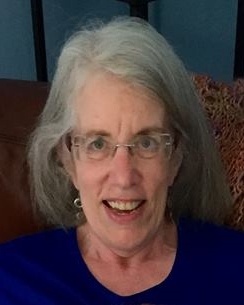We often point to Kedoshim, The Holiness Code (Lev. 19 & 20), as containing the heart of the Torah, the mitzvah to Love your neighbor as yourself (Lev. 19:18). Having recently retold the story of our liberation from oppression in Egypt at our Pesach seders, we might reconsider and look to Leviticus 19:33-34 as the heart of the Torah: When a stranger resides with you in your land, you shall not wrong him. The stranger who resides with you shall be to you as one of your citizens; you shall love him as yourself, for you were strangers in the land of Egypt: I the Lord am your God.
Every week on Tuesday, I visit the McHenry County Jail with other volunteers from the Interfaith Committee for Detained Immigrants. This week, I met with Juan, who was just picked up on a DUI and transferred a few days later to immigration detention, subject to deportation. He was shaken to the core, going from a defined sentence of a week or two for a DUI to indefinite detention and probable deportation. He has been in this country for 21 years. He is the breadwinner for his family and helps his children stay on track with their schoolwork. Now his life and that of his family have been turned upside down. Luckily, his cellmate is Ray, in detention for close to two years fighting his deportation order, who can help Juan handle the separation from his family and fight his case. Ray is hoping to be released by the middle of May, when his son will graduate from medical school.
It’s one thing to love your neighbor, the one with whom you have so much in common, as yourself. It is a harder task to look at persons of a different color, class, language, or culture and regard them as equally in need of respect and compassion as your neighbor. The jail ministry to detained immigrants has opened my eyes and my heart to the other, to those so unlike me that I might have simply looked the other way, out of fear, distrust, or disinterest. Instead I witness the grief, fear, and worry of so many, and the fortitude and resolve to get through the tragedy and trauma that has shaken their lives and that of their families. And I witness the deep appreciation for the presence of human beings who listen and understand and care. We are told over and over by those in detention how we lift their hearts, at the same time that we as volunteers feel so frustrated by our inability to free those across the table and return them to their families.
Loving the stranger as ourselves – not simply doing the stranger no harm, but easing their oppression – is our most important task. It is the only way to repair the terrible rifts in our world. It means doing all we can to lift the federal requirement to fill 34,000 jail beds with detained immigrants each night. It means doing all we can to open our doors to refugees, to open our hearts to the more than 60 million refugees worldwide to find them safe places.
I used to cite Love your neighbor as yourself as the core principle of the Torah. I have come to understand that Love the stranger as yourself is both the core principle of the Torah and our mission as a light unto the nations.
Maralee Gordon is the rabbi of McHenry County Jewish Congregation in Crystal Lake, Illinois, and of Congregation Beth Shalom in DeKalb, Illinois. For six years she has been visiting individuals detained by ICE (Immigration & Customs Enforcement) in the McHenry County Jail, as part of the Interfaith Committee for Detained Immigrants.

